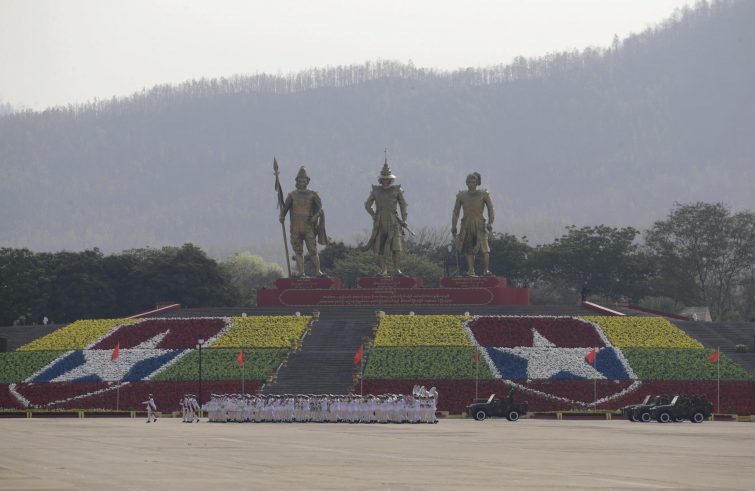
“The political situation in Myanmar is fraught with hardships, especially in Chin State. Attacks, forced displacement of civilians and humanitarian crises are ongoing in many areas of Chin State”, says Msgr. Lucius Hre Kung, Bishop of Hakha. While the Ukrainian crisis has been the overriding issue of concern for mass media and public opinion in Europe, people in Myanmar, who suffered a coup d’état on February 1, 2021, have been struggling and losing their lives as a result of violence, poverty and vulnerable conditions. The United Nations Office for the Coordination of Humanitarian Affairs (OCHA) estimates that the number of internally displaced persons (IDPs) in Myanmar has exceeded one million for the first time in the history of the nation, almost 700,000 of whom have been forced to flee due to instability caused by the coup and because of the civil war that flared up across the country. Fighting intensified in many parts of Myanmar, further exacerbating its pre-existing humanitarian crisis.
In fact, the situation is deteriorating by the day with indiscriminate attacks and incidents caused also by anti-personnel mines and explosive remnants of war lying on the battlefield. Civilian deaths run in the thousands.
Monsoon emergency. The monsoon season that hit Rakhine, Kachin, Southern Shan and Kayin since April, with heavy storms and downpour of rain, also damaged IDP shelters which were in precarious conditions to begin with. The Bishop of Hakha voiced his concern:
“The arrival of the rainy season raises greater concerns over people’s health and access to food in Chin State as many residents have fled and are displaced throughout for safety reasons.
We are also concerned from a Christian perspective as it is hard for us to reach them and provide pastoral care at this exceptionally difficult time.”
Myanmar views with concern also the ongoing military crisis in Europe. “We are indeed concerned about the war in Europe today,” points out Msgr. Kung. “We fear that Europe could somehow succumb to armed conflict again. But at the same time, I trust that its deep-rooted Christian heritage will play a strong role in this regard.” Nevertheless, one thing is certain: “The war in Ukraine has an economic impact on Myanmar. It also changes our political and social worldview”, notes the bishop. He adds: “The ongoing conflict in Europe has overshadowed the Burmese crisis also in the press. While the decline in humanitarian aid is not noticeable per se, I fear that it may drop in the near future under the impact of the war in Ukraine. I am therefore making an appeal: we need your help and we call for international humanitarian aid for the people in Myanmar, especially for the people in Chin State. It is a known fact that Myanmar is sadly marked by widespread poverty. Peace in the country is crucial, for if there is no peace, the people risk falling into extreme poverty. We expect that the Christian values underlying Europe’s recent past will be upheld and respected.
Europe has served as a firm point of reference for the rest of the world. We ask this Europe to remain faithful to its vocation and to remain steadfast in its commitment to world peace. We also appeal to Europe to continue offering humanitarian aid to the world, especially to Myanmar.”
In a Report titled “Bullets rained from the sky: War crimes and displacement in eastern Myanmar”, released June 1st, Amnesty International documents the violence perpetrated by the Myanmar military against civilians in Karen and Kayah States. The military inflicted collective punishment on civilians, it relentlessly attacked villages with air strikes and land attacks, arbitrary arrests often resulting in torture or extrajudicially executed people, along with systematic looting and burning of villages. Fighting escalated significantly in the two States December 2021 to March 2022, killing hundreds of civilians and forcibly displacing more than 150,000 people.
The situation in the northern region of Sagaing is equally worrying.
Residents and local media reported that the Burmese army torched hundreds of buildings during a three-day raid. Last week, soldiers set fire to hundreds of dwellings in the three-day raid on the villages of Kinn and Ke Taung. The raid began on May 26. The soldiers stormed into the villages firing guns into the air, frightening villagers. Aerial drone footage, obtained by AFP, show columns of smoke rising from the affected villages, located on the banks of the Chindwin River.












